
Recent advancements in Unet-based diffusion models, such as ControlNet and IP-Adapter, have introduced effective spatial and subject control mechanisms. However, the DiT (Diffusion Transformer) architecture still struggles with efficient and flexible control. To tackle this issue, we propose EasyControl, a novel framework designed to unify condition-guided diffusion transformers with high efficiency and flexibility. Our framework is built on three key innovations.
First, we introduce a lightweight Condition Injection LoRA Module. This module processes conditional signals in isolation, acting as a plug-and-play solution. It avoids modifying the base model weights, ensuring compatibility with customized models and enabling the flexible injection of diverse conditions. Notably, this module also supports harmonious and robust zero-shot multi-condition generalization, even when trained only on single-condition data.
Second, we propose a Position-Aware Training Paradigm. This approach standardizes input conditions to fixed resolutions, allowing the generation of images with arbitrary aspect ratios and flexible resolutions. At the same time, it optimizes computational efficiency, making the framework more practical for real-world applications.
Third, we develop a Causal Attention Mechanism combined with the KV Cache technique, adapted for conditional generation tasks. This innovation significantly reduces the latency of image synthesis, improving the overall efficiency of the framework.
Through extensive experiments, we demonstrate that EasyControl achieves exceptional performance across various application scenarios. These innovations collectively make our framework highly efficient, flexible, and suitable for a wide range of tasks.
The illustration of EasyControl framework. The condition signal is injected into the Diffusion Transformer (DiT) through a newly introduced condition branch, which encodes the condition tokens in conjunction with a lightweight, plug-and-play Condition Injection LoRA Module.

During training, each individual condition is trained separately, where condition images are resized to a lower resolution and trained using our proposed Position-Aware Training Paradigm. This approach enables efficient and flexible resolution training. The framework incorporates a Causal Attention mechanism, which enables the implementation of a Key-Value (KV) Cache to substantially improve inference efficiency. Furthermore, our design facilitates the seamless integration of multiple Condition Injection LoRA Modules, enabling robust and harmonious multi-condition generation.
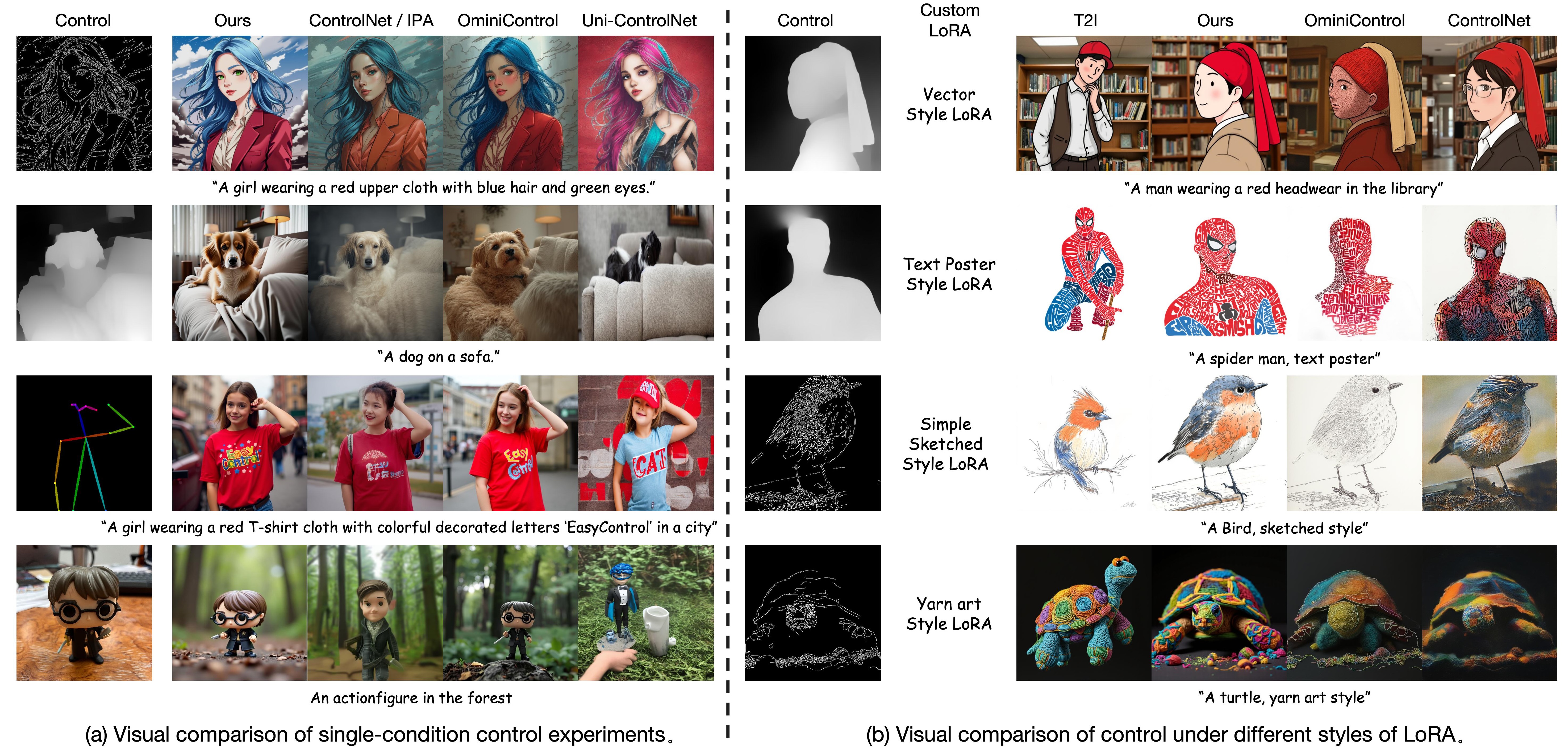
Visual comparison between different methods in single condition control. Figure (a) shows the results of each method under different control conditions and Figure (b) shows the adaptation of each method with different Style LoRAs under control.
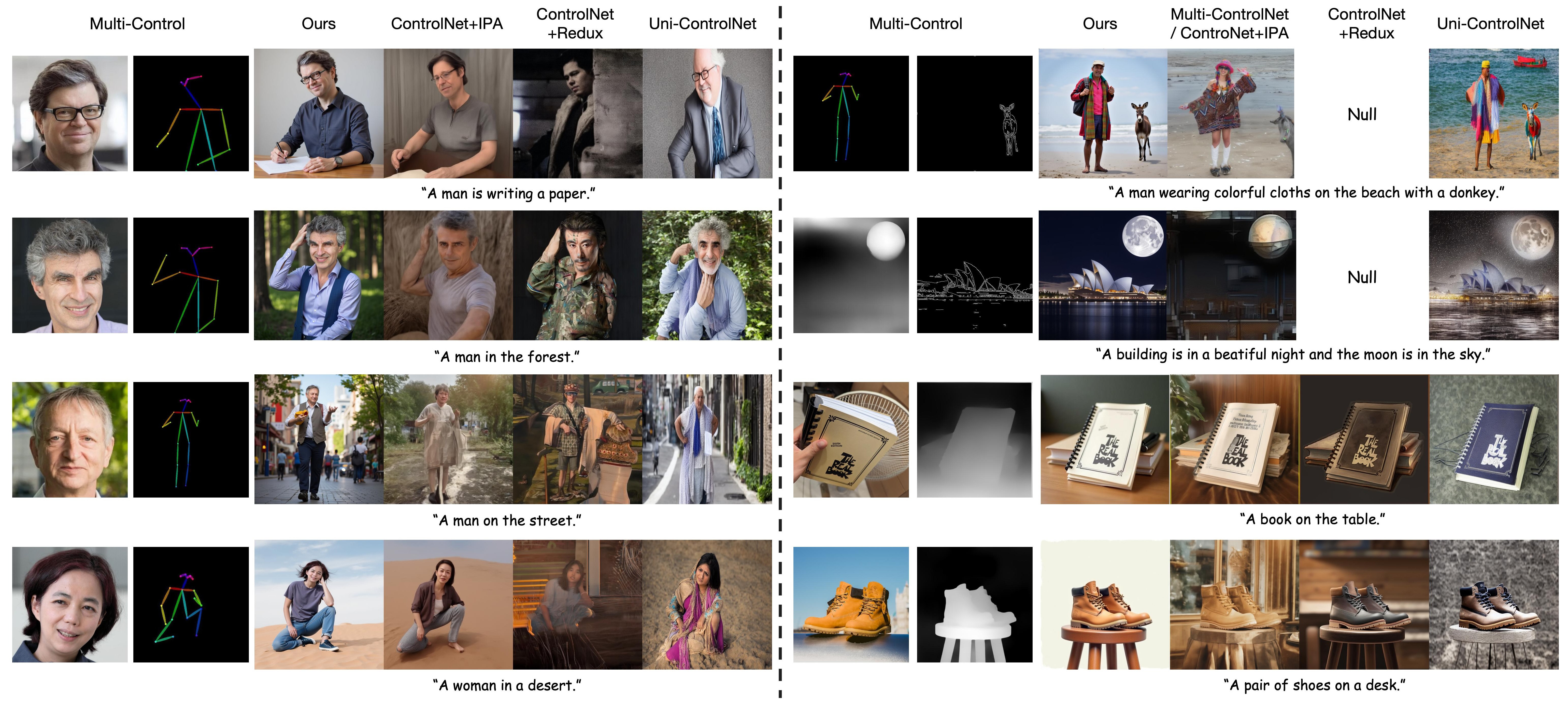
Visual comparison of different methods under multi-condition control.
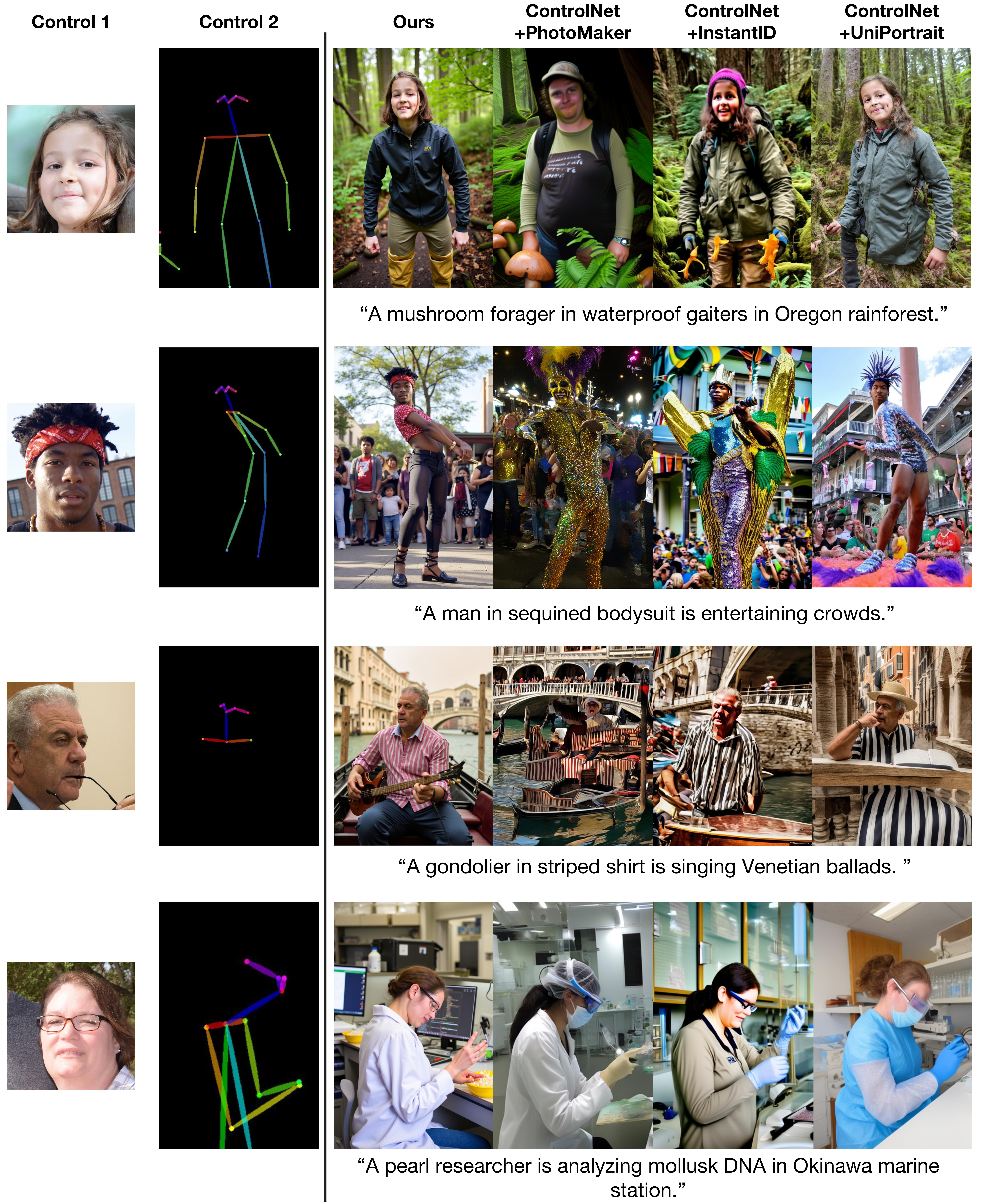
Visual comparison with Identity customization methods under multi-condition generation setting.
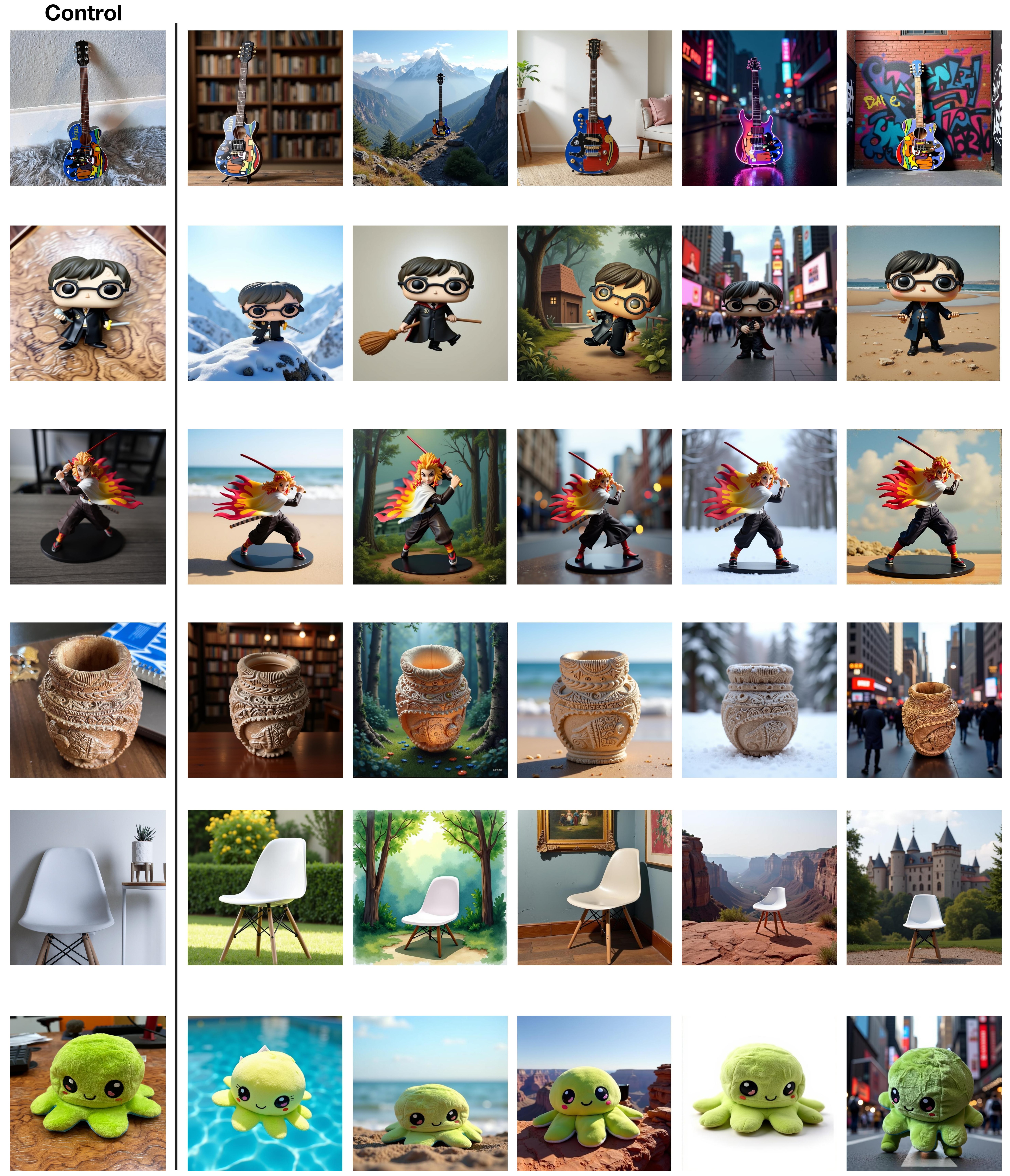
Visualization of subject control generation.
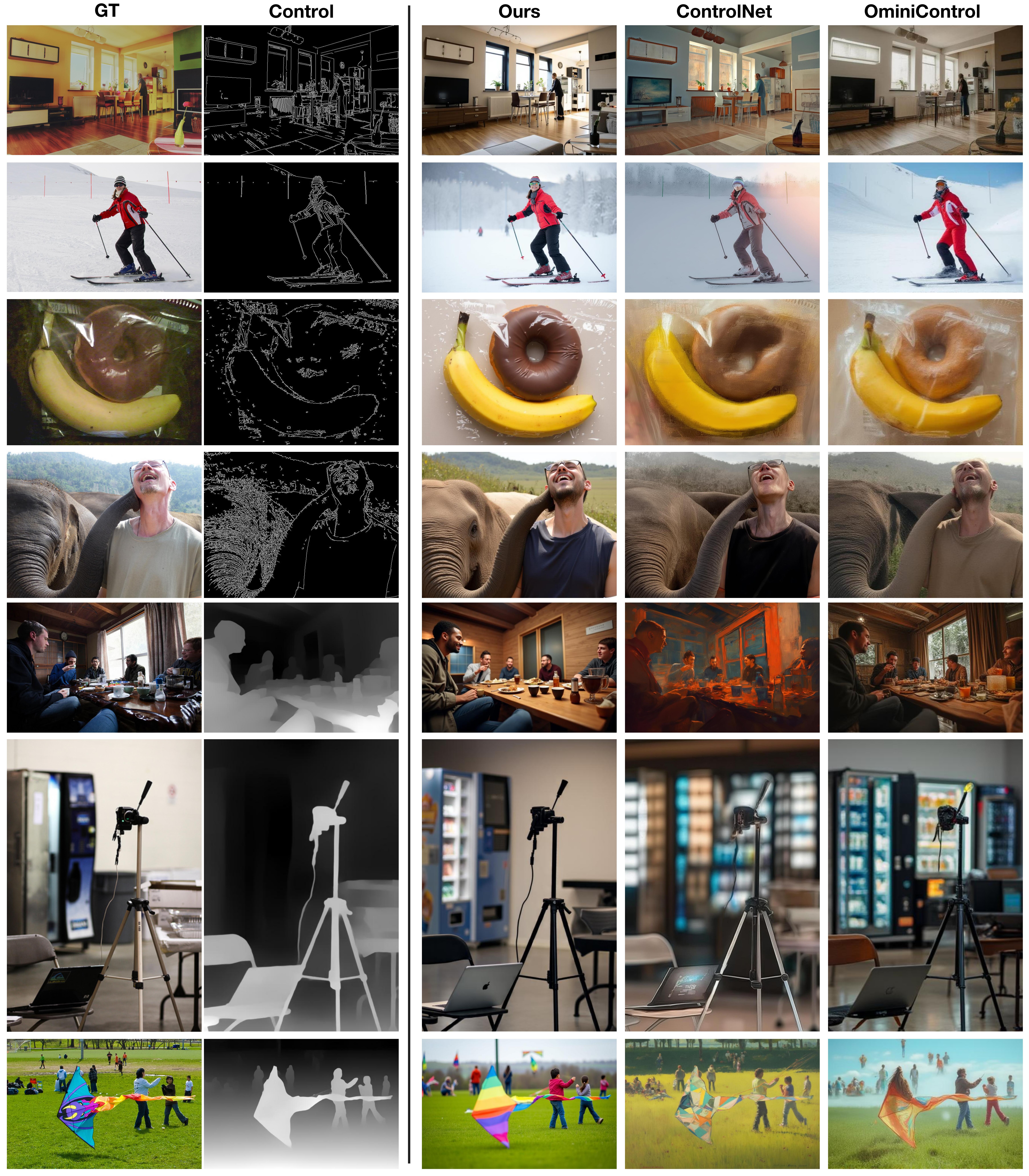
Visualization of spatial control generation.
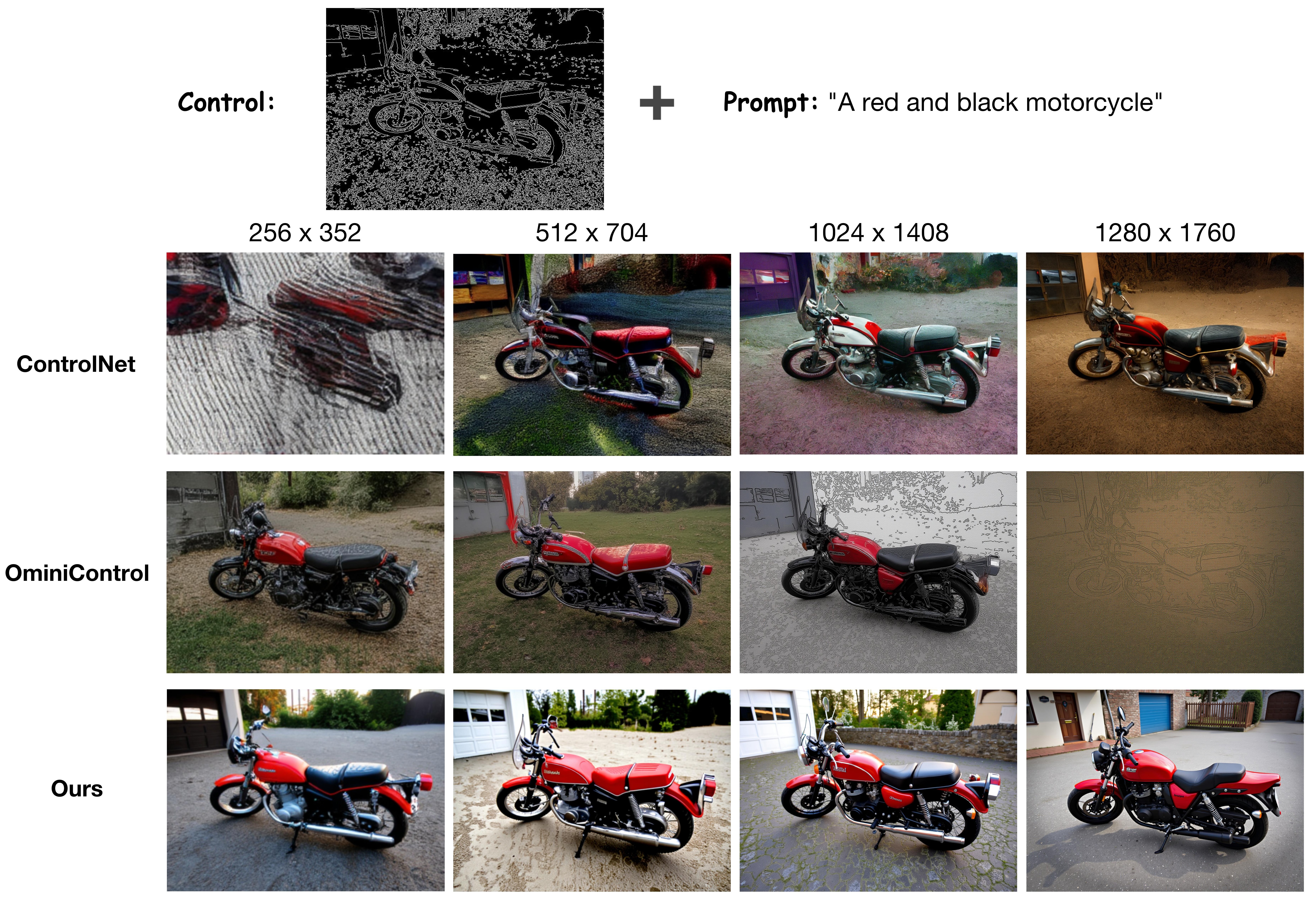
Visual comparison with baseline methods under different resolution generation settings.
@misc{zhang2025easycontroladdingefficientflexible,
title={EasyControl: Adding Efficient and Flexible Control for Diffusion Transformer},
author={Yuxuan Zhang and Yirui Yuan and Yiren Song and Haofan Wang and Jiaming Liu},
year={2025},
eprint={2503.07027},
archivePrefix={arXiv},
primaryClass={cs.CV},
url={https://arxiv.org/abs/2503.07027},
}